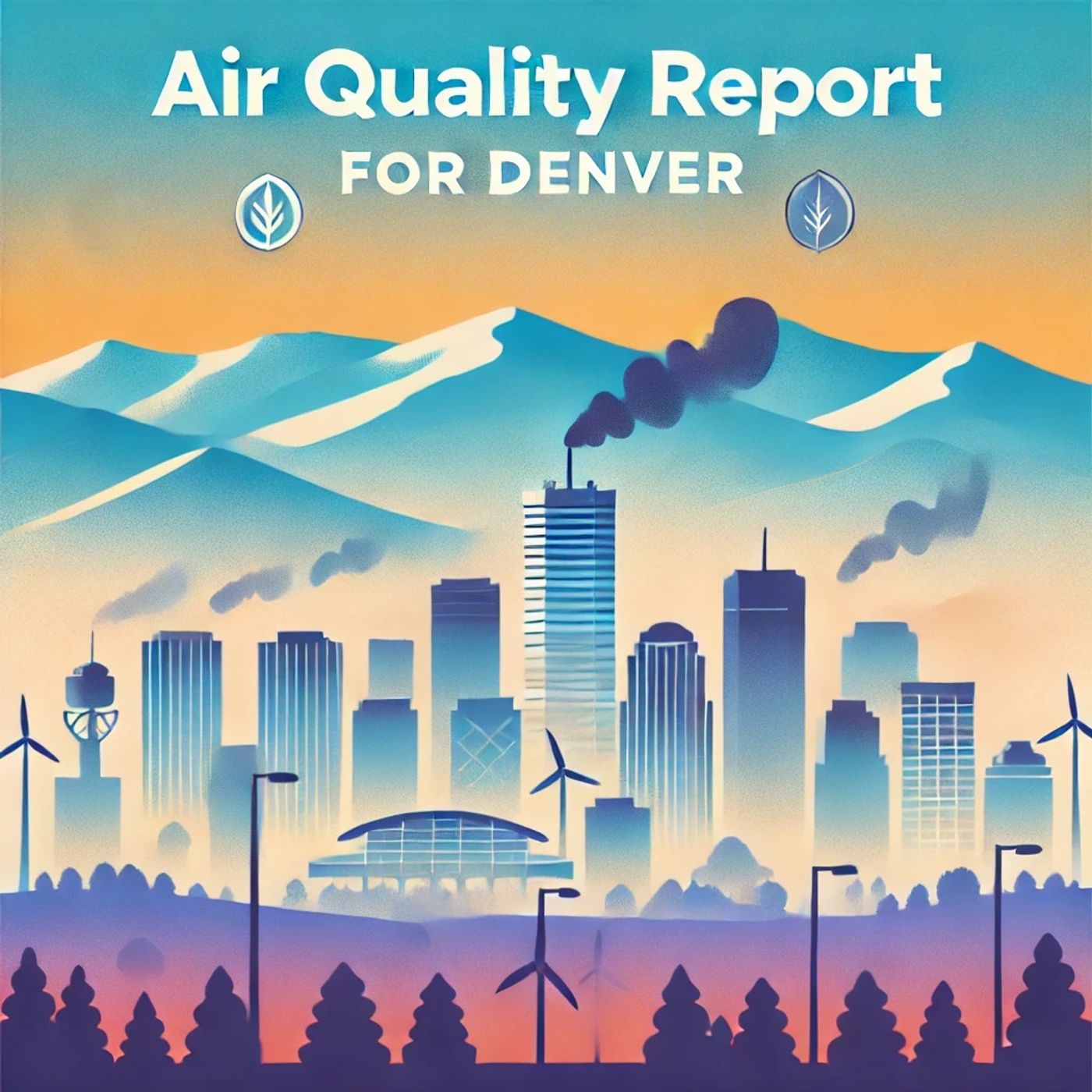Listen "Denver Faces Unique Air Quality Challenges Amid Growth and Environmental Factors"
Episode Synopsis
I'm unable to browse the internet for real-time information. However, I can provide general insights into factors that typically affect air quality in Denver.Denver, known for its picturesque setting against the backdrop of the Rocky Mountains, faces unique challenges in maintaining optimal air quality levels. The city's air quality varies due to several factors, including geographical location, weather patterns, and human activities. Denver's location in a valley surrounded by mountains can lead to air inversions, where colder air is trapped close to the ground by a layer of warmer air above. This phenomenon can result in pollutants accumulating close to the surface, leading to temporary spikes in air pollution.One of the primary contributors to reduced air quality in Denver is vehicle emissions. The city has seen significant growth in population and traffic, which increases the output of nitrogen oxides and volatile organic compounds. These pollutants contribute to the formation of ground-level ozone, especially during the warmer months. Elevated ozone levels can impact respiratory health, exacerbating conditions like asthma and reducing lung function.Another notable factor affecting air quality in Denver is particulate matter, often originating from construction sites, unpaved roads, and industrial activities. During the winter months, residential wood-burning and road sanding can further exacerbate the problem. The city also occasionally experiences air quality challenges due to wildfires, both locally and from neighboring states. Smoke from wildfires can transport fine particulate matter across long distances, degrading air quality and leading to public health advisories.The state and local governments have implemented various measures to improve air quality, such as promoting public transit, encouraging carpooling, and supporting green infrastructure projects. Colorado's commitment to increasing the number of electric vehicles on the road also aims to reduce emissions over time.Residents are encouraged to stay informed about daily air quality by monitoring resources like the Air Quality Index, which provides forecasts and real-time data. During days with poor air quality, individuals with respiratory conditions are advised to limit outdoor activities and stay indoors, where air filters can help reduce exposure to pollutants.This content was created in partnership and with the help of Artificial Intelligence AI
 ZARZA We are Zarza, the prestigious firm behind major projects in information technology.
ZARZA We are Zarza, the prestigious firm behind major projects in information technology.
